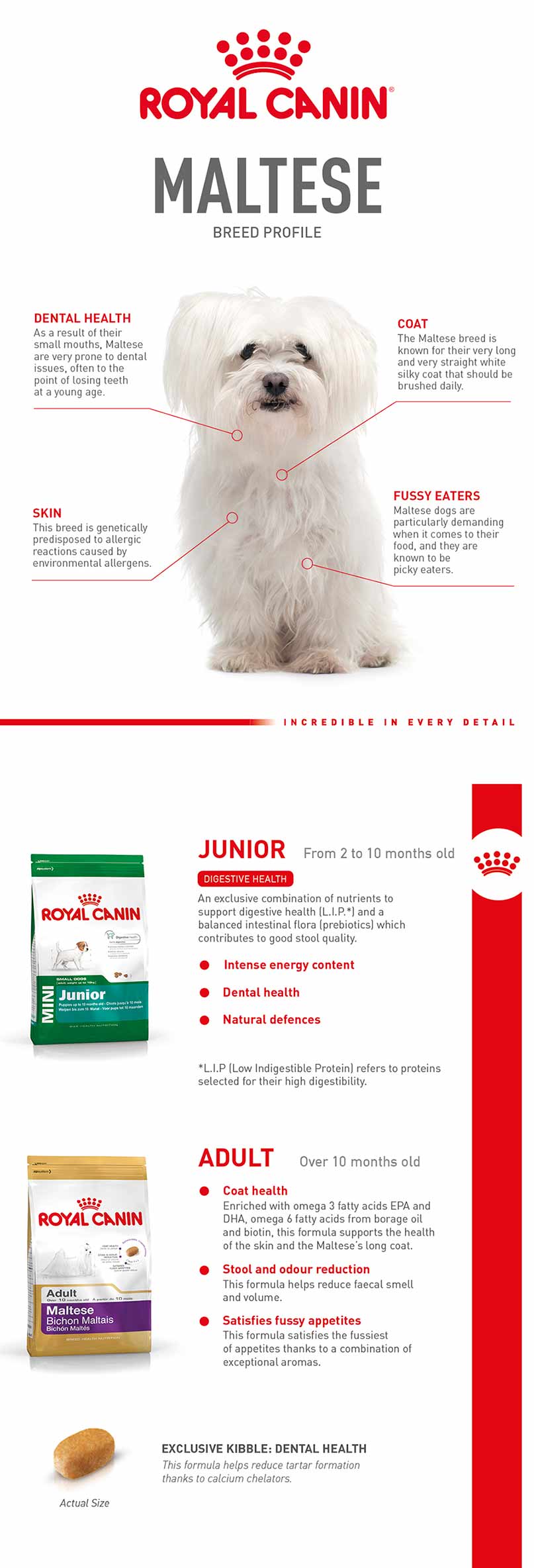Did you know that maltese puppies have a sensitive digestive system? This means that what they eat can greatly impact their overall health and well-being. So, what should maltese puppies eat to ensure they receive the necessary nutrients for their growth and development?
Maltese puppies have specific dietary needs that should be met to keep them healthy. They require a balanced diet that includes high-quality protein, carbohydrates, fats, vitamins, and minerals. It is important to choose a puppy food that is specifically formulated for small breeds and meets the nutritional requirements of maltese puppies. Additionally, it’s crucial to provide them with small, frequent meals to prevent hypoglycemia, a condition common in toy breeds like maltese.
Providing the right diet is crucial for the development and well-being of maltese puppies. Their nutrition plays a vital role in their overall health, growth, and energy levels. As a small breed, maltese puppies have high energy needs and should be fed a diet that is rich in protein to support their muscle development. It is recommended to feed them a balanced diet that consists of high-quality puppy food, supplemented with occasional fruits and vegetables. Feeding them a diet suitable for their size and age will ensure that they receive the essential nutrients for a healthy and happy life.

What Can Maltese Puppies Eat?
Welcoming a Maltese puppy into your family is an exciting and joyful experience. As a responsible pet owner, it’s crucial to provide your furry friend with a balanced and nutritious diet to support their growth and overall health. Knowing what foods are safe and appropriate for your Maltese puppy is essential. In this article, we will explore the dietary needs of Maltese puppies, including foods they can eat, foods to avoid, and tips for feeding them properly.
The Importance of a Balanced Diet
Feeding your Maltese puppy a balanced diet is vital for their health and well-being. A balanced diet should include high-quality protein, healthy fats, carbohydrates, vitamins, and minerals. Protein is essential for muscle growth and development, while fats provide energy and support the proper functioning of their organs. Carbohydrates are a source of energy, while vitamins and minerals are needed for various bodily functions.
When selecting food for your Maltese puppy, it’s best to choose a high-quality commercial puppy food that is specifically formulated for small breed dogs. These foods are designed to meet the unique nutritional needs of your Maltese puppy. Always check the ingredients list to ensure that the food contains high-quality protein sources such as chicken, turkey, or fish. Avoid foods that contain fillers, artificial preservatives, and colors.
Safe Foods for Maltese Puppies
Maltese puppies can safely consume a variety of foods to ensure they receive the nutrients they need. Some safe and nutritious options include:
- High-quality puppy food: Look for commercial puppy food that is specifically formulated for small breed dogs.
- Lean meats: Cooked chicken, turkey, and lean cuts of beef are excellent sources of protein for Maltese puppies. Remove any bones, skin, and fat before feeding.
- Fish: Cooked and deboned fish, such as salmon or trout, can provide omega-3 fatty acids that promote a healthy coat and skin.
- Fruits and veggies: Apples, bananas, blueberries, carrots, and green beans are safe and nutritious options. Make sure to cut them into small, bite-sized pieces to prevent choking.
- Grains: Cooked rice, oatmeal, and quinoa are easily digestible and can provide energy for your Maltese puppy.
- Dairy products: Small amounts of plain yogurt or cottage cheese can be given as an occasional treat, but avoid any lactose-containing products if your puppy is lactose intolerant.
Foods to Avoid
While some foods are safe for Maltese puppies, there are several foods that you should avoid feeding them. These include:
- Chocolate and caffeine: Both contain substances that can be toxic to dogs.
- Onions and garlic: These can cause damage to your puppy’s red blood cells.
- Grapes and raisins: These can be toxic and cause kidney damage.
- Avocado: Avocado contains a substance called persin, which can be harmful to dogs.
- Nuts: Some nuts, such as macadamia nuts, can cause adverse reactions in dogs.
- Fatty foods: Foods high in fat can lead to digestive upset and pancreatitis in dogs.
- Dairy products: Some puppies may be lactose intolerant and can experience gastrointestinal issues if they consume dairy products.
Feeding Tips for Maltese Puppies
Here are some essential tips to keep in mind when feeding your Maltese puppy:
- Stick to a regular feeding schedule: Establish a consistent feeding routine to maintain the puppy’s digestive health.
- Monitor portion sizes: Maltese puppies are small and have unique dietary needs. Follow the recommended portion sizes provided on the puppy food packaging and adjust as needed based on your puppy’s age and activity level.
- Avoid overfeeding: Maltese puppies are prone to obesity, so it’s crucial to avoid overfeeding them. Use treats sparingly and opt for healthier options like small pieces of cooked chicken or carrots.
- Provide fresh water: Make sure your Maltese puppy always has access to clean drinking water.
- Gradually introduce new foods: When introducing new foods to your Maltese puppy, do so gradually to prevent digestive upset. Mix small amounts of the new food with their current food and gradually increase the ratio over time.
The Best Foods for Maltese Puppies
Maltese puppies require a nutritious diet to support their growth and development. Here are the top foods that you can safely feed your Maltese puppy:
1. High-quality puppy food
Choose a high-quality commercial puppy food that is specifically formulated for small breed dogs. Look for foods that contain natural, wholesome ingredients and avoid those with artificial additives and fillers.
2. Lean meats
Cooked chicken, turkey, and lean cuts of beef are excellent sources of protein for Maltese puppies. Remove any bones, skin, and fat before feeding the meat to your puppy.
3. Fish
Cooked fish, such as salmon or trout, can provide omega-3 fatty acids that support healthy skin and coat. Ensure that the fish is deboned and cooked thoroughly before feeding it to your puppy.
4. Fruits and vegetables
Apples, bananas, blueberries, carrots, and green beans are safe and nutritious options for Maltese puppies. Cut them into small, bite-sized pieces to prevent choking.
5. Grains
Cooked rice, oatmeal, and quinoa are easily digestible sources of carbohydrates that can provide energy to your Maltese puppy. These grains should be cooked until soft before feeding.
6. Dairy products
Small amounts of plain yogurt or cottage cheese can be given as an occasional treat. However, be cautious if your puppy is lactose intolerant, as dairy products can cause gastrointestinal upset.
7. Nutritional supplements
In consultation with your veterinarian, you may consider adding certain supplements to your Maltese puppy’s diet to ensure they receive all the necessary vitamins and minerals. These supplements should only be given under professional guidance.
Remember, the specific dietary needs of your Maltese puppy may vary based on their age, size, activity level, and overall health. It’s always best to consult with your veterinarian to develop a personalized feeding plan for your furry friend.
Key Takeaways: What Can Maltese Puppies Eat?
- 1. Maltese puppies can eat high-quality puppy food specifically formulated for small breeds.
- 2. Fresh, lean meats like chicken or turkey can be a healthy protein source for Maltese puppies.
- 3. Fruits such as apples, bananas, and blueberries can provide essential vitamins and minerals.
- 4. Vegetables like carrots and green beans are great for adding fiber and nutrients to their diet.
- 5. It’s important to avoid feeding Maltese puppies toxic foods like chocolate, onions, and grapes.
Frequently Asked Questions
Welcome to our guide on what to feed your Maltese puppies! Below, you’ll find answers to some commonly asked questions to ensure your puppies are getting the right nutrition for their health and growth.
1. What are the best food options for Maltese puppies?
When it comes to feeding your Maltese puppies, high-quality commercial puppy food is a great option. Look for a brand that offers complete and balanced nutrition specifically formulated for small breeds. This ensures that your Maltese puppies receive the right balance of proteins, carbohydrates, and fats to support their growth and development.
It’s important to avoid feeding your Maltese puppies table scraps or adult dog food, as these may not provide the right nutrients or can upset their sensitive stomachs. Speak to your veterinarian for specific recommendations based on your puppy’s individual needs.
2. Can Maltese puppies eat human foods?
While some human foods are safe for Maltese puppies, it’s important to be cautious about what you offer them. Foods like cooked chicken, carrots, and plain yogurt can be given as occasional treats, but always in small, bite-sized pieces. Avoid seasoning, spices, and any toxic foods, such as chocolate, onions, or grapes, as these can be harmful to your pet.
Remember, human foods should never replace a well-balanced, commercial puppy food diet. Consult with your veterinarian before introducing any new foods to your Maltese puppies’ diet.
3. How often should I feed my Maltese puppies?
For Maltese puppies, it’s recommended to feed them small, frequent meals throughout the day. Their tiny stomachs cannot hold large volumes of food at once, so dividing their daily recommended portion into multiple meals ensures they receive the necessary nutrition without overloading their digestive system.
Aim to feed your Maltese puppies at least three to four meals a day, spacing them out evenly. As they grow older, you can gradually reduce the frequency of meals and transition to a standard feeding schedule based on your veterinarian’s recommendations.
4. Are there any foods to avoid feeding Maltese puppies?
Avoid feeding your Maltese puppies foods that can be toxic or harmful to their health. This includes chocolate, onions, grapes, raisins, caffeine, alcohol, and foods high in salt or sugar. These can cause severe health complications in puppies and should be strictly avoided.
Dairy products like milk and cheese should also be given in moderation as some Maltese puppies may be lactose intolerant. Additionally, be cautious with certain raw foods like raw eggs and raw meat, as they can present risks of bacterial contamination.
5. How can I ensure my Maltese puppies have a balanced diet?
Ensuring a balanced diet for your Maltese puppies involves offering a complete and balanced commercial puppy food, providing a variety of proteins, carbohydrates, and healthy fats, and avoiding excessive amounts of treats or human food. Following your veterinarian’s guidance on portion sizes and feeding schedules will also help in maintaining a proper balance of nutrients.
If you have concerns about your Maltese puppies’ diet or need personalized advice, it’s always best to consult with your veterinarian. They can provide specific recommendations based on your puppies’ age, size, and individual needs.

10 Human Foods That Are Actually Best For Your Maltese Dog
Summary
Maltese puppies can eat a variety of foods but should stick to a balanced diet. Feeding them high-quality puppy food with the right nutrients is important for their growth. It’s best to avoid feeding them human food, as it may not be suitable for their digestive system. In addition to their main meals, they can have occasional healthy treats like fruits and vegetables. Always make sure to provide fresh water and monitor their portion sizes to prevent overeating. Lastly, consulting with a veterinarian is essential to ensure the puppy’s diet meets its individual needs and promotes overall health.
